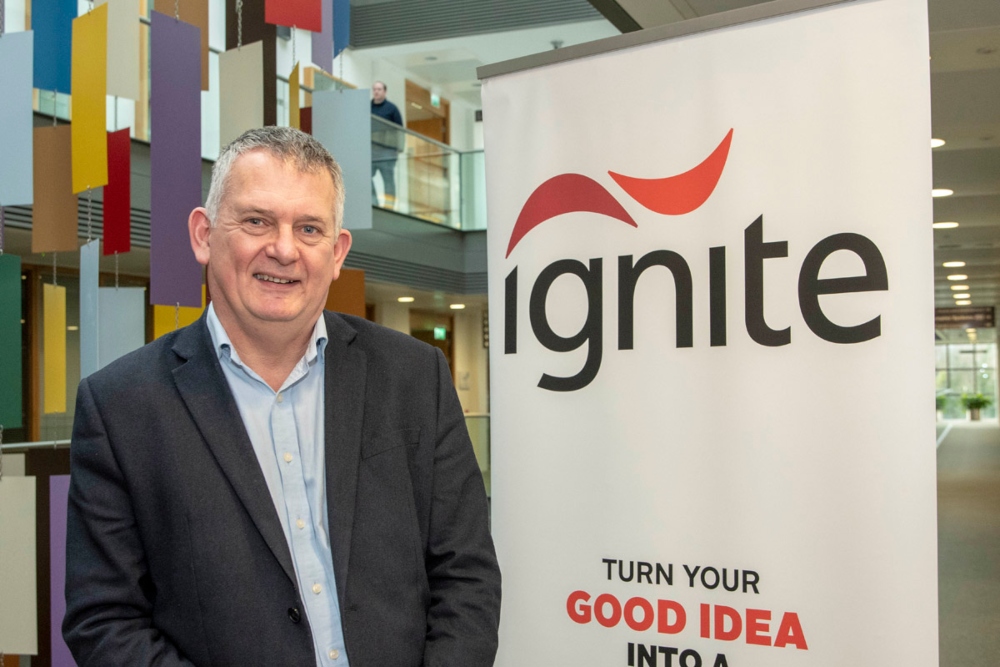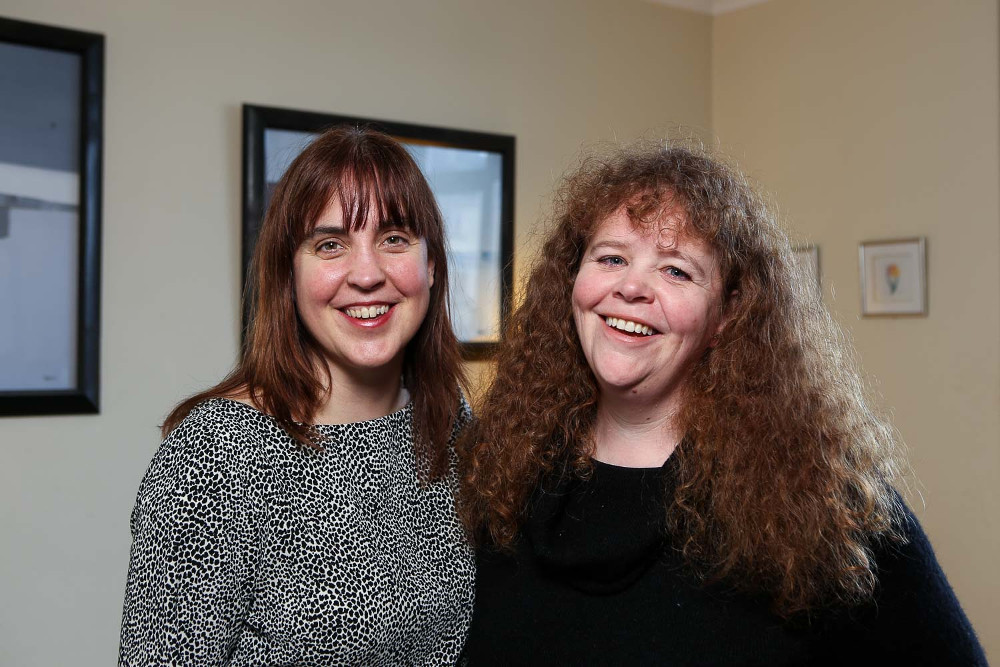IGNITE UCC’s Eamon Curtin talks about forging effective businesses after 10 years of sparking the ambitions of promising young university start-ups.
With the 16th IGNITE UCC programme commencing in September, a new cohort of promising young entrepreneurs will be put through their paces as part of a formula that works.
Since beginning in 2011, the IGNITE accelerator programme at UCC has developed into a well-oiled machine for giving recent graduates with business ideas the discipline to hone their ideas and succeed in the world of business.
“Our emphasis is on ‘learning by doing’. Start-up founders are exposed to the knowledge and skills they need to know when they need to know it so they can apply the learning directly to their business as they go”
The programme is open to graduates in any discipline from any third level institution in Ireland.
Supported by Bank of Ireland, IGNITE is a joint initiative by University College Cork, Cork City Council, Cork County Council and the Local Enterprise Offices of Cork City and County.
In the past 10 years IGNITE has supported 150 different start-ups to take off.
ThinkBusiness spoke to IGNITE director Eamon Curtin about reaching the 10-year milestone and what the future holds.
Now in its 10th year, how has IGNITE evolved since starting at UCC in 2011?

Eamon Curtin, director of IGNITE UCC
IGNITE has developed from one six-month incubation programme supporting 10 start-ups in 2011 to two 12-month programmes supporting 20 start-ups every year. And we now offer a range of supports such as Start-Up Lab, an eight-evening programme, to help student and recent graduate founders to develop their ideas before progressing to IGNITE.
We have developed many aspects of our workshops, for example, we have introduced a series of workshops on customer engagement with a focus on questioning and listening skills to help founders gain customer insights in the early stages of developing their idea. These dovetail with later sales workshops where the focus is on things like objection handling and negotiating skills.
We have significantly expanded the network of entrepreneurs, business owners and industry executives who contribute to the programme every year.
But most importantly, with 150 start-ups on or through the programme to date, we have an active network of successful founders who began their businesses with IGNITE and are always open to provide practical advice and guidance to those who follow.
What are the core philosophies/methodologies that you instil in your start-ups and what are the main strengths your start-ups leave with?
Our emphasis is on ‘learning by doing’. Start-up founders are exposed to the knowledge and skills they need to know when they need to know it so they can apply the learning directly to their business as they go.
This is delivered through a series of workshops, seminars and guest entrepreneurial speakers.
Workshops are designed to develop essential hard and soft skills such as business model innovation, marketing, finance, sales, presentation and networking. Where possible a ‘flipped classroom’ approach is taken where participants are encouraged to read or watch relevant material, apply that material to their own business and to get guidance from experienced mentors and workshop facilitators on how to improve.
Seminars are used to provide information on topics such as company structures, taxation, IP management, sources of finance and similar.
Our guest speaker sessions feature experienced entrepreneurs and business owners, who share their entrepreneurial stories, help founders understand the behaviours and attitudes that contribute to successful start-ups.
“We’re looking forward to the next 10 years of inspiring, encouraging, nurturing and supporting recent graduate founders to build great businesses”
How has the pandemic changed the business landscape from the point of view of young companies/founders getting their businesses off the ground?
Start-up founders welcome change because that’s what creates new opportunities.
If anything, the pandemic has accelerated the pace of change and created even more opportunities.
Successful founders have reacted with agility, creativity and innovation to take advantage.
How has IGNITE transformed to guide young companies during the pandemic?
We have delivered the programme online since March 2019 and have introduced online speed networking and one-on-ones to replicate the informal connections that are a natural consequence of people sharing a workspace.
We are looking forward to reintroducing more face to face engagement and seeing more use of the shared workspace in the months ahead as circumstances allow.
What kind of a world will the class of 2021/2022 be launching into in terms of business but also technology trends?
In terms of business, I think our start-ups founders are more globally minded. One thing that we have learned from the pandemic is that it’s as easy to connect with a customer, investor, partner or employee in New York as it is one in Cork.
From a technology perspective, the pandemic has created exciting opportunities for digital technologies across all sectors: health and wellbeing, food & agriculture, business & financial services, education and retail.
What does the future hold for the IGNITE programme?
We look forward to welcoming IGNITE16, our 16th cohort, to UCC’s Western Gateway Building this Autumn. The programme is 10 years old this year. We’re looking forward to the next 10 years of inspiring, encouraging, nurturing and supporting recent graduate founders to build great businesses.
We look forward to the ongoing support of Bank of Ireland, the Local Enterprise Offices of Cork City and County, Cork City Council and Cork County Council and we welcome the support of new partners to help us create yet more entrepreneurial founders of innovative start-ups that provide value-creating products and services and so create high value jobs and investment opportunities in the region.
By John Kennedy (john.kennedy3@boi.com)
Published: 15 July 2021






